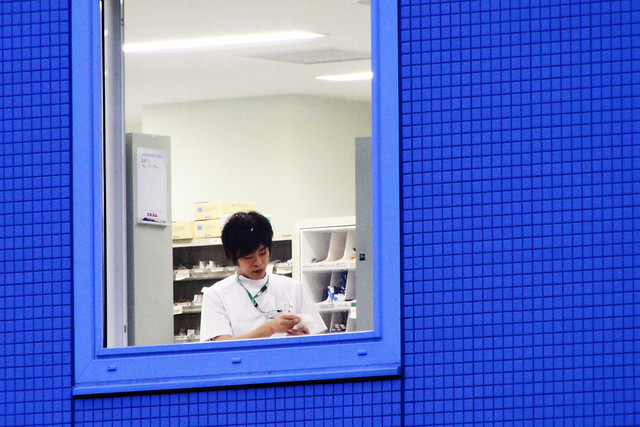Your guide to writing a highly effective medical CV
This guide is based on the latest advice from the British Medical Association (BMA), Royal College of Nursing (RCN) and other professional organisations in healthcare. It’s designed to tell you everything you need to know about writing your CV, short of doing it for you! Never forget that whether it’s delivered in paper or electronic form, your CV is effectively your first interview for a job. So, it needs to make a really good impression from the start.How to set out a medical CV
Here are the essential elements of a CV in the healthcare industry.- Your name, contact details and relevant registration numbers (eg General Medical Council reference).
- Summary that explains what you have to offer in around 100 words.
- List of career achievements that relate directly to the position being applied for.
- List of posts held, with dates and summary of key achievements.
- List of education and qualifications, with dates.
- List of awards and other forms of recognition, if appropriate.
- List of courses attended.
- Interests - only include if these are significant or relevant. Avoid the obvious such as 'reading', 'walking', and 'socialising'.
- Indicate that references are available on request.
Your medical CV must be clear
There is no prescribed format for a CV for a nurse, doctor or other medical professional. It’s your choice how to lay it out. A template for a doctor’s CV is available from the BMA website. Your CV will be split into sections. First comes your essential details - name, address, medical registration details and the like. Other sections will include a brief summary of why you are a good fit for the role you are applying for, your medical qualifications, details of the medical facilities where you’ve worked, appropriate courses you’ve taken, career highlights and some insights into you as a person.Facts you must include in your CV:
- Name, address and the telephone number you want to be contacted on.
- Relevant registration numbers and expiry dates, such as your Nursing and Midwifery Council PIN number and renewal date.
- You are not required to give date of birth, nationality or marital status.
It’s important to make it easy for someone to read and understand your CV. Mark each section with a clear headline and lay it out so it’s easy to follow. Leave plenty of white space around and between the sections. Avoid trying to cram in too much information.
A good way to check whether your CV is laid out well is to ask someone who’s not seen it before to tell you what it means. If they can interpret the information easily, it should make sense to someone who’s used to looking at medical CVs.
Resist the temptation to use fancy fonts, different colours or even graphics on your CV. The reader wants fast access to the facts about your medical training and career, not an introduction to your graphic design skills (or lack of them).
Tips for keeping your CV easy to read:
- Leave plenty of white space.
- Use a standard font, such as Arial, size 11.
- Avoid using graphics or colours.
- Make sure that the layout of lists, such as qualifications, is really easy to read.
Your medical CV must be concise
It may shock you that many medical recruiters only spend a few seconds looking at a CV before deciding whether to reject it. Your CV has to be good enough to pass that initial short and sharp review.
The ideal length for a medical CV is two pages of A4. That’s two sides of text, probably in font size 11, with a reasonable amount of white space. If your CV goes beyond that, it’s too long. If you’re a highly qualified doctor, with a lot of research and publications to your name, you could go to a third page, but for most people, two is enough.
Learn to summarise, particularly when describing jobs held more than ten years ago.
Tips on CV writing style:
- Don’t use ‘I’, as in “I did this…â€
- Take a look at example CVs online.
- Use action words like ‘developed’, ‘organised’, ‘completed’ and ‘improved’.
With your most recent roles, record your achievements rather than your responsibilities. For example, your job may have required you to manage a team of people. Rather than just writing “Managed team of 3 peopleâ€, try to write down what you achieved with those people.
Did you recruit them? You could write: “Built a strong team of 3 people.†Did your team stand out in some way? “Built strong team of 3 that won regional recognition for performance.â€
Use numbers where possible. Rather than “Managed department budget†you could write “Managed department budget of £250,000â€.
Where you improved efficiency and effectiveness, try to express that in numbers. Rather than “Introduced new processes to cut waiting timesâ€, try something like: “Cut waiting times by 30 mins per patient by introducing new processes.â€
The art of squeezing as much into your CV as possible, while using very few words, comes down to rewriting your sentences to eliminate words. This also helps you think through what it is that you’re actually trying to say.
Tips for keeping your CV concise:
- Keep it to a maximum length of two pages of A4.
- Summarise details of jobs more than 10 years ago.
- Avoid waffle.
- Use numbers to highlight key achievements.
Your medical CV must be highly relevant
Every time you apply for a job, tailor your CV for that particular position. People assessing your CV want to see a close match between what you offer and what they need.
Use keywords to keep your CV relevant. When you’re applying for a healthcare job, the first time your CV is read it may be by a computer, which will be looking for those keywords. Recruiters are increasingly using automated systems to filter out the CVs they don’t want. A CV that’s not a close match to what they want is more likely to fail at this first stage. Having the right keywords will help your CV to be relevant.
To find the keywords, read the job advert and specification very carefully. For example, the advert for a GP practice nurse could ask for someone to provide a range of minor treatments, give immunisations, have great communication skills and be used to working autonomously.
For this role, keywords include immunisation and vaccine, communication and autonomous working. When reviewing your CV, find the aspects of your healthcare career that best demonstrate your knowledge and experience of these areas and highlight them. Be sure to use the keywords at least once.
Think about including:
- Professional groups you belong to, both formal and informal.
- Relevant personal interests and activities.
- Referees who are appropriate for the role being applied for.
It’s really important to put relevant information right at the start of your medical CV. The recommended format for a CV is to open with a brief summary that encapsulates what you have to offer in around 100 words. This summary must be directly relevant to the job you’re applying for.
The job of your CV is to grab the reader’s attention from the start by presenting you as someone who would be suitable for the role. The more time they spend looking at your CV, the more chance you have of getting through to the next stage in the recruitment process.
Tips for keeping your CV relevant:
- Revise your CV to make it focused on each job you apply for.
- Find and make use of keywords.
- Focus your CV on your knowledge and experience that matches the job requirements.
Your medical CV must be accurate
Did you know that a single typo could lose you a job opportunity? Some recruiters are so swamped with similar CVs that they reject some based on the slightest mistake. It might not seem fair, but when they need to cut 50 CVs down to a shortlist of five, and most of the CVs offer people with similar skills, the recruiter needs to find a way of deciding which to reject.
Being accurate on a medical CV means more than just checking spelling. Your facts must be right, about where you worked and when, what you achieved, and your qualifications.
Common errors on CVs:
- The wrong use of common words, such as using ‘there’ instead of ‘their’.
- Using an old phone number, or one that’s hard to reach you on.
- Inconsistent use of font styles and sizes across one document.
When it comes to the final selection, the people looking to recruit you may decide to look you up online. Will what they find on Facebook, LinkedIn or other websites match what’s on your CV?
Don’t be tempted to hide or ignore career breaks. They’re quite normal, and what you did in that break, such as taking time out to care for someone, could be relevant.
Tips for keeping your CV accurate:
- Use a spelling and grammar checker.
- Double check that your dates and qualifications are right.
- If you share job information online, be consistent.
- Be honest!
How to make your medical CV stand out:
- Keep it short - ideally no more than two sides of A4.
- Keep it clear - break up the information in clear, logical sections and leave plenty of white space.
- Keep it brief - try to say as much as you can in as few words as possible.
- Keep it relevant - concentrate on facts that relate to the job you’re applying for.
- Keep it accurate - avoid spelling mistakes and typos. Read, re-read and re-read again.





